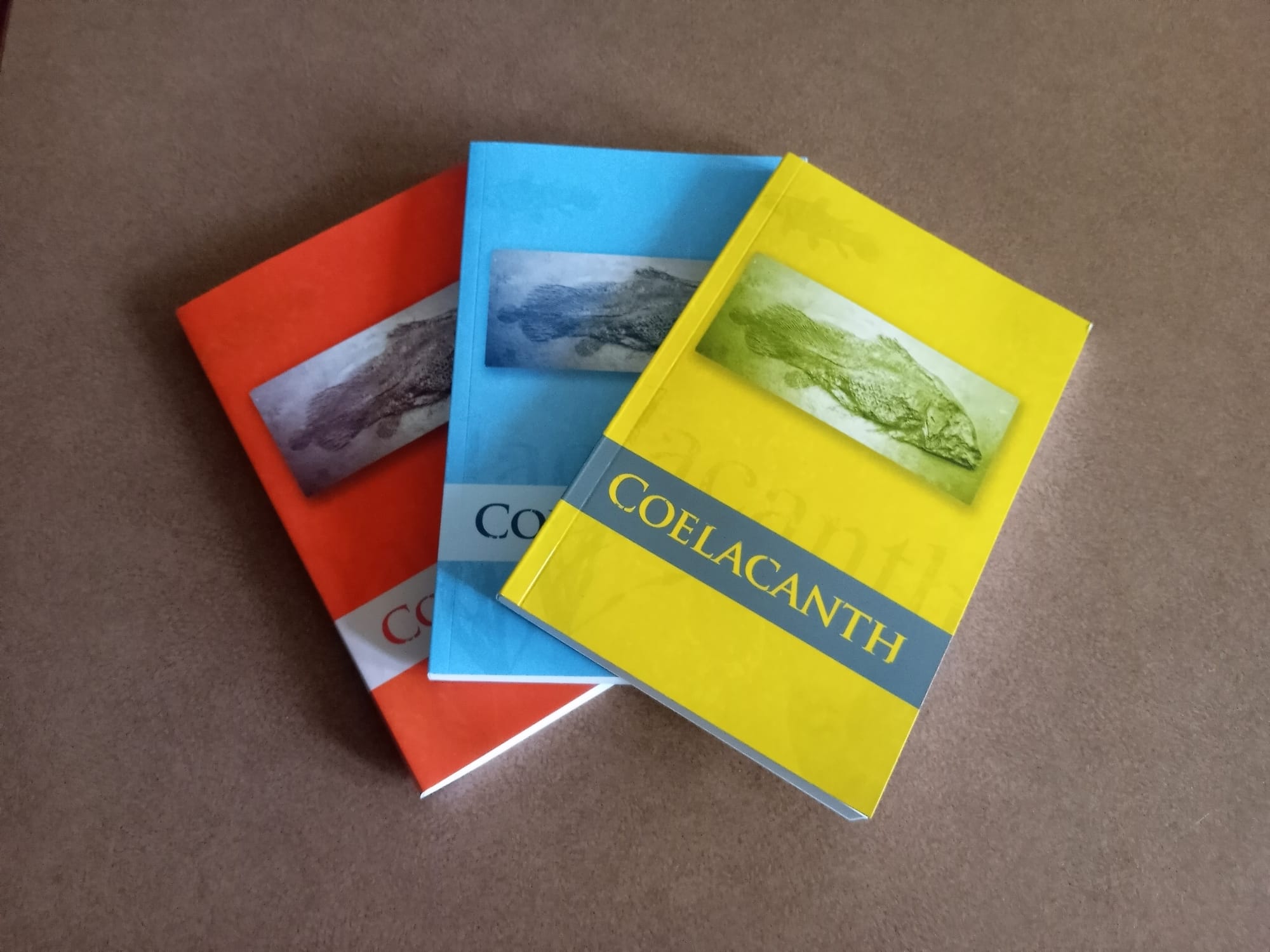By Victor Dixon, Editor-in-Chief
Is creative expression going extinct at Newman?
Newman’s “Coelacanth” student literary journal will be publishing its final issue this year.
The journal has a long history of providing students with the opportunity to create and edit poems, prose, art and photography.
But without a faculty member to advise its compiling, editing, and publishing processes, the 2023 issue will be the final one for the foreseeable future, former English professor Bryan Dietrich and the journal’s most recent editor-in-chief Hadassah Umbarger said.
Dietrich, who was the faculty adviser for the student editing team and was laid off last year along with multiple others as part of the university’s “academic program prioritization” efforts, has since been teaching classes online for Boston University and has been working on several independent literary works.
The literary journal was first known as “Channel” from 1951 to 1988, and then after disappearing for four years, it returned from 1992 to 1993 as “Newman and Friends” to honor Jeanne Lobmeyer Cardenas, a retiring English professor.
It then became “The Journal of Sheridan Edwards” in 1994, when Dietrich took on the role of adviser, bringing the experience he had on previous literary magazines.
It was renamed to the ‘Sheridan Edwards Review’ from 1995 to 2011. Then in 2012, it was named for a prehistoric fish and became the “Coelacanth” journal that students know today, along with another journal called “Archaeopteryx: The Newman Journal of Ideas,” which featured work from professors and authors.
“Coelacanth” featured poetry, prose, art and photography from undergraduate students across the country, received five awards from the Rocky Mountain Collegiate Media Association and other national awards, and distributed copies nationwide to universities, high schools, the top 100 creative writing programs, and to students featured in the journal.
Contributors had the opportunity to win two literary prizes: the Sister Madeleine Kisner Prize in Poetry and the Jeanne Lobmeyer Cardenas Prize in Short Fiction, which would be awarded along with cash prizes after the work was reviewed by the student editing team and judged by renowned authors.
The journal was compiled and edited entirely by a team of students, typically English majors, and many student editors and writers have gone on to assume successful roles for other magazines or other literary works.
“It allowed for creative writers from all over the school, but also all over the country, to submit work and have a home for their creative writing,” Dietrich said. “It was an encouraging way to provide an outlet for the written word, and for Newman in particular, it allowed our students themselves to publish there but also to get experience in publishing and editing.”
Once published and printed, a debut event would be put on and students, community members, and featured writers could get their own copies of the journal and discuss the content.
Dietrich and the final edition’s editor-in-chief, Umbarger, a 2023 graduate who now works as the administrative assistant for the Division of Arts & Humanities and the School of Catholic Studies, put the final edition together and published it over the last school year.
They say that they plan to host a debut event for this edition this year, although they do not have one scheduled yet.
Last fall, the English, history, philosophy, and theatre majors were all discontinued at Newman, and the associated departments also lost several professors to layoffs. Interviewed this month, Dietrich and Umbarger both expressed concern for the future of the humanities at Newman.
“It’s not really something that we think about or care about anymore,” Umbarger said. “We go to school so that we can get a good job, and that’s the only reason that anyone’s pursuing a college education anymore. And so the fact that Coelacanth existed … that would open your mind up and help you realize there’s more to life than your career.”
“I wish the university all the best,” Dietrich said. “But the decision to eradicate English and literature is, I think, ill conceived and runs contrary to the mission of the school and the purpose of the original vision of the sisters, in my opinion.”
The 2023 edition of “Coelacanth” is available on Amazon for $20, and copies will be available at the debut event when it is scheduled.
PHOTO: Victor Dixon, Editor-in-Chief
